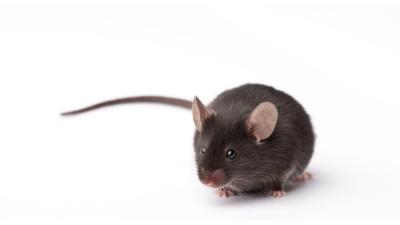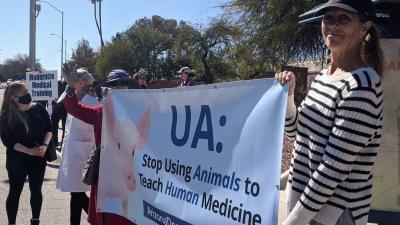USDA Finds Animal Welfare Act Violations at Dartmouth
Inspection Report Reveals Protocol and Animal Committee Failures
LEBANON, N.H.—Following a complaint filed by the Physicians Committee for Responsible Medicine on Mar. 2, 2017, an Apr. 19-20 inspection by the U.S. Department of Agriculture’s Eastern Region Animal Care office revealed inadequate oversight of animal training protocols by Dartmouth College’s Institutional Animal Care and Use Committee (IACUC).
Dartmouth’s training of emergency medicine residents currently involves cutting into live sheep to practice procedural skills, but the Animal Welfare Act’s implementing regulations require that a principal investigator—including course instructors—consider alternatives to procedures that may cause more than momentary or slight pain or distress to any animal used for research or training purposes.
The USDA’s inspection report cited Dartmouth’s IACUC for failing to require investigators to consider alternatives to using animals, to provide justification for animal use, and to provide a complete description of how the animals would be used.
According to an ongoing survey, 89 percent of U.S. emergency medicine residencies (144 of 162)—including other New England programs at Boston University, the University of Massachusetts, Maine Medical Center in Portland, and the University of Connecticut—teach residents solely using nonanimal methods, such as human-based medical simulation, partial task trainers, and cadavers.
“A proper alternatives search would have revealed that the college could not justify its use of animals for emergency medicine training,” says John Pippin, M.D., F.A.C.C., director of academic affairs for the Physicians Committee. “The vast majority of emergency medicine residencies now recognize that patient simulators and other devices are superior to the use of animals in that they allow for repeated practice and are actually modeled after human anatomy.”
In addition, in the same report the USDA cited Dartmouth for failing to provide basic animal care, which resulted in the deaths of 13 animals in 2016. If the university cannot provide basic care to the animals in its custody, it calls into question the willingness of Dartmouth to conform to the Animal Welfare Act.
Dartmouth-Hitchcock Medical Center, where the emergency medicine residency training lab takes place, already has a state-of-the-art simulation center—the Patient Safety Training Center—which could provide the technology to replace this use of animals.
For a copy of the inspection report or to interview Dr. Pippin, please contact Reina Pohl at 202-527-7326 or RPohl@PCRM.org.
Founded in 1985, the Physicians Committee for Responsible Medicine is a nonprofit organization that promotes preventive medicine, conducts clinical research, and encourages higher standards for ethics and effectiveness in education and research.








